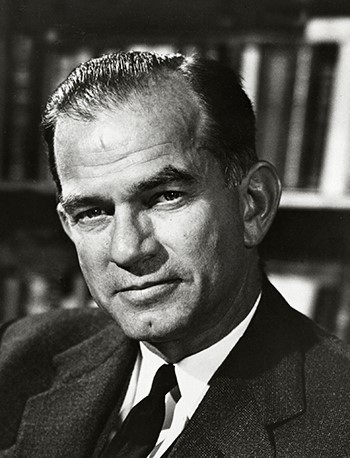The Fulbright Program is the most prestigious scholarship program in the United States.
The program was initiated in 1946, after the Second World War, with a bill submitted to the American Congress by Senator J. William Fulbright to develop a common understanding between countries through education and cultural exchange. Senator J. William Fulbright, the originator of this law, saw the Fulbright Program as a step taken against the potential for armed conflict in our world. Thanks to this program, American students and artists benefit from education and research opportunities in many parts of the world, and students, teachers and academics from all over the world can conduct research and receive education in America.
The Fulbright Program offers people the opportunity to develop themselves internationally in a world where countries are becoming increasingly interdependent.
For detailed information about the Fulbright Program and the Fulbright Commissions in 155 countries around the world and the activities of these commissions, you can click on the link www.fulbright.state.gov. Click here to get information about the Türkiye Fulbright Education Commission.

Who is Senator J. William Fulbright:
Born in Sumner (Missouri) in 1905, Fulbright studied Political Science at the University of Arkansas in 1925 and earned a master's degree at Oxford University. Fulbright studied law at George Washington University when he returned to his country, and worked at the Department of Justice and George Washington University in the 1930s. The successful academician would become the youngest president in the country when he took over the University of Arkansas in 1939. Fulbright was elected to the U.S. House of Representatives in 1942 and was appointed to the Foreign Affairs Committee the following year. In September 1943, the House of Representatives passed the Fulbright Resolution supporting U.S. participation in the peacekeeping mechanism that would later be called the United Nations. The congressman attracted attention with this historic decision. Fulbright was elected to the US Senate in November 1944, served until 1974, and chaired the Senate Foreign Relations Committee from 1959 to 1974. The cultural exchange program proposal, prepared by the senator and drawing its strength from the determination of the American people to establish constructive relations with the community of nations, was unanimously accepted in 1946. The first participants of the Fulbright Program began this long journey in 1948, with support from war reparations and loan repayments to the United States. Fulbright has received numerous awards from governments, universities, and educational institutions around the world for its efforts in education and international understanding. In 1993, he was presented with the Presidential Medal of Freedom by US President Bill Clinton. Fulbright, who left behind an extraordinary career in which he touched the lives of thousands of people and a well-established program spread all over the world, passed away in 1995.